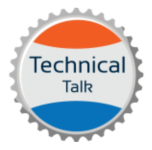In our fast-paced world, prioritizing quality sleep is more important than ever. Yet, many struggle to achieve restful nights. This is where sleep-tracking apps emerge as valuable tools. Furthermore, these apps leverage smartphone technology to monitor your sleep patterns, providing insights and guidance to improve your nighttime routine. This article explores the benefits of sleep-tracking apps, delves into their functionalities, highlights features to consider, and showcases some of the most popular options available.
The Power of Sleep Tracking Apps
To begin with, sleep-tracking apps can be powerful allies in your quest for better sleep. These apps utilize various methods, such as microphone sensors to detect sleep sounds or motion sensors to track movement, to analyze your sleep throughout the night. In the morning, you’ll receive a detailed report outlining your sleep stages (light, deep, REM), total sleep duration, and potential disruptions like awakening or restless sleep. Moreover, by tracking your sleep patterns over time, you can identify trends and understand how different factors, like caffeine intake or screen time before bed, might be impacting your sleep quality.

Personalized Insights and Recommendations
Secondly, sleep tracking apps go beyond simply monitoring your sleep. Many offer personalized insights and recommendations based on your sleep data. These insights might highlight areas for improvement, such as difficulty falling asleep or maintaining sleep throughout the night. The app might then suggest personalized solutions, like relaxation techniques or bedtime routines, to address these issues. Some apps even integrate with smart home devices, allowing you to adjust factors like room temperature or lighting to create a more sleep-conducive environment.
Choosing the Right Sleep Tracking App
Thirdly, with a multitude of sleep-tracking apps available, choosing the right one depends on your individual needs and preferences. Here are some key features to consider:
Tracking Methods
Understand how the app tracks your sleep – microphone, motion sensors, or wearable devices. Consider factors like comfort and privacy when making your choice.
Data Analysis and Insights
Evaluate the level of detail provided in sleep reports. Do you need basic sleep duration or a more in-depth analysis of sleep stages and potential disruptions?
Sleep Improvement Tools
Look for apps offering personalized recommendations, relaxation techniques, or integration with smart home devices.
Ease of Use
Choose an app with a user-friendly interface that allows you to easily access and understand your sleep data.
Popular Sleep Tracking Apps
Several sleep-tracking apps have gained popularity for their user-friendly features and helpful functionalities. Here’s a glimpse into some of the top contenders:
Sleep Cycle
This app utilizes advanced audio analysis to track sleep stages and wakefulness. Additionally, it offers gentle wake-up alarms and soundscapes designed to promote relaxation.
Pillow
This app combines sleep tracking with biofeedback features, monitoring heart rate variability to assess sleep quality. It offers personalized sleep coaching and educational content.
Pzizz
This app focuses on sleep-inducing soundscapes and guided meditations. More so, it utilizes a personalized mixology approach to create unique soundscapes tailored to your preferences.
Calm
This popular app goes beyond sleep tracking, offering a variety of mindfulness exercises, sleep stories, and calming music to promote relaxation and better sleep.
Sleep watch
More so, this app specifically caters to Apple Watch users, leveraging the watch’s motion sensors to track sleep. It provides detailed sleep graphs and integrates with Apple Health for a holistic view of your well-being.
While these are just a few examples, numerous other sleep-tracking apps exist, each with its unique features and functionalities. Explore the options available, consider your budget and desired features, and find the app that best suits your sleep improvement goals.
A Note on Accuracy and Limitations
It’s important to acknowledge that sleep-tracking apps may not be perfect. Their accuracy can vary depending on the tracking method used and potential environmental factors. Furthermore, these apps should not be considered a definitive diagnosis of sleep disorders. However, they can be valuable tools to gain insights into your sleep patterns and identify areas for improvement.
Conclusion
In conclusion, sleep-tracking apps offer a convenient and accessible way to monitor your sleep and gain valuable insights into your nighttime routine. Additionally, by utilizing these apps alongside healthy sleep habits, you can embark on a journey towards achieving better, more restful sleep, and ultimately, a healthier and more energized you.
